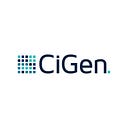The pharmaceutical industry is under the spotlight after the COVID-19 pandemic outbreak. In fact, it is the sector that raises highest expectations with regard to keeping under control and minimising the coronavirus human toll.
This is an additional reason for pharmaceutical companies to deal efficiently with the incumbent economic damage, and to try to place themselves among the 47% “rising stars” during turbulent times of economic crisis, not among the 89% “sinking ships”. This is the expressive terminology used by Bain & Company to systematise the results of a S&P Capital IQ research conducted around the 2008 economic depression.
But what is there to be done?
A 2020 Bain survey shows that 84% of the companies across the industry spectrum plan to take action in the direction of accelerating automation efforts.
Their results also show that during the COVID-19 crisis, pharmaceutical companies relied on automation to carry out a range of functions, like supporting clinical testing to speed up vaccine development, or accelerating data entry and analysis. So it certainly makes sense to take things a little further and investigate more carefully some potential real world use cases of robotic process automation in the pharmaceutical industry.
Benefits of RPA in the pharmaceutical industry
The main reason that recommends the use of RPA in pharmaceutical companies is the large number of routine tasks that make up the workflow profile. Consider the need to duplicate notes on several systems to ensure consistent reporting of the work that is split between more labs, the management of clinical trial data, or the recurring regulatory filings.
- Reduced time to market. Software robots can complete repetitive, tedious tasks promptly and with quasi perfect accuracy. As a consequence, the collection of real-time information can proceed at a much faster pace, and clinical trials are facilitated. This means that the bots allow pharma companies to come up with new medicines in much shorter time, which improves productivity and performance.
- Facilitate management of regulatory compliance requirements. Because it cuts down the possibility of human error, RPA strengthens compliance with stringent standards and increasingly complex regulations.
- ROI maximisation. Automation of routine tasks helps pharmaceutical companies reduce their production and compliance costs, which results in higher return on investment.
- Increased agility. RPA in the realm of pharmaceutical companies may take advantage of the lessons learned from other industry sectors, which have embarked on the automation journey earlier, e.g., finance, healthcare, insurance, etc. Starting with realistic expectations, providing employees with (re)skilling opportunities, or supporting developers’ communication with users are among the most useful approaches to ensure automation buy-in within the company.
Use cases of RPA in the pharmaceutical industry
1. Foster individualized marketing
Software robots can mimic medical companions for patients, providing relevant information, tailored to what each individual patient needs to know. Intelligent automation allows the use of chatbots that can take one step further the provision of customer-specific data, ensuring that patients get all and only the information that is relevant for them.
By providing patients with real-time knowledge, made to fit their own needs, bots act as virtual medical companions for them. This offers customers a personalized experience. The outcome? Shorter response times, improved patient experience, and thus more engaged customers. As a result, the pharma company itself will achieve a higher standing.
It is also very important to stay realistic and not to assume that these chatbot virtual assistants can function totally independently and fully replace human staff. For one, AI-chatbots’ behavior is dependent on programmed scripts. Relatedly, their lack of flexible judgment and the inability to process emotional cues, calls for twofold human intervention: IT experts to program the bots, and pharma people whose degree of oversight can prevent spurious advice on health issues.
2. Facilitate clinical development
This involves processes aimed at drug development and drug approval, which are underpinned by clinical trials. It thus has top priority in the value chain of life sciences, and, unfortunately, it is also very costly.
Software robots can perform menial tasks such as data entry or quality control very fast and with maximal accuracy. This efficiency bonus translates into significant savings for clinical trials. Additionally, bots can perform large-scale interpretation and processing of clinical trials data, e.g., radiology reports, and thus facilitate the identification of high-risk abnormalities in images.
